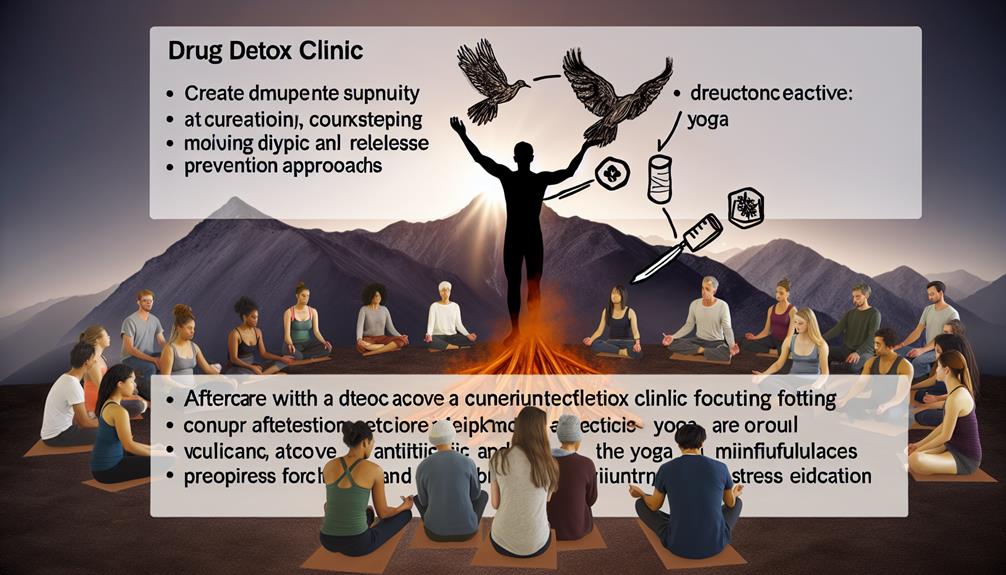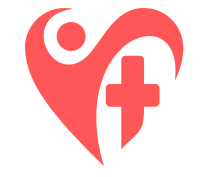Welcome to the doorway of recovery, where the shadows of addiction are left behind and the light of transformation awaits. Like a compass guiding lost souls back to the path of hope, a drug detox clinic serves as a sanctuary for those seeking to break free from the chains of substance abuse. But what exactly happens behind those closed doors? How does the process of detoxification unfold? And what support services are available to aid in the journey towards long-term sobriety? Step inside, and let us unravel the answers together.
The Importance of Drug Detox Clinics

If you or someone you know is struggling with drug addiction, seeking help from a drug detox clinic can be a crucial step towards recovery. These clinics play a vital role in helping individuals safely and effectively overcome their addiction. One of the key aspects of drug detox clinics is the use of medication in the detoxification process. Medications are often used to manage withdrawal symptoms and cravings, making the detoxification process more comfortable and increasing the chances of successful recovery. The types of medication used vary depending on the drug being abused and the individual's specific needs.
Additionally, the impact of family involvement in drug detoxification cannot be underestimated. Research has shown that when families are actively involved in the detoxification process, the outcomes are often more positive. Family support and encouragement can provide individuals with the motivation and strength they need to stay committed to their recovery journey. Moreover, family members can also receive education and support through the detox clinic, helping them understand addiction better and learn how to best support their loved one throughout the recovery process.
The Process of Detoxification
What is the process of detoxification and how does it work? Detoxification, also known as detox, is the process of removing toxins from the body. It is an essential part of recovering from drug addiction, as it helps the body eliminate harmful substances and restore its natural balance. Here are some key points to understand about the process of detoxification:
- The benefits of supervised detox: Supervised detox is conducted in a controlled environment under the guidance of medical professionals. This ensures the safety and well-being of the individual undergoing detoxification. Medical supervision allows for the management of withdrawal symptoms and the provision of necessary support and medication, if needed.
- Common withdrawal symptoms: When the body is deprived of drugs or alcohol, withdrawal symptoms can occur. These symptoms can range from mild to severe and may include nausea, vomiting, sweating, anxiety, and insomnia. The severity and duration of withdrawal symptoms vary depending on the individual's substance abuse history.
- Duration of detoxification: The duration of detoxification can vary depending on the type of substance used, the duration and intensity of use, and individual factors. In general, detoxification can take anywhere from a few days to a couple of weeks. However, the process of recovery extends beyond detoxification and may involve further treatment and support.
- Holistic approach: Detoxification is not just about eliminating toxins from the body. It often involves a holistic approach that addresses physical, psychological, and emotional aspects of addiction. This may include counseling, therapy, and support groups to help individuals develop coping skills and strategies for long-term recovery.
- Continued support: Detoxification is just the beginning of the recovery journey. Continued support and aftercare are crucial for maintaining sobriety and preventing relapse. This may involve ongoing therapy, participation in support groups, and the development of a relapse prevention plan.
Understanding the process of detoxification can help individuals and their loved ones navigate the challenges of addiction recovery. Supervised detox, along with comprehensive treatment and support, can provide a solid foundation for long-term sobriety.
Types of Detox Programs Offered

Detox programs offer a range of options for individuals seeking to overcome substance addiction. One type of detox program that is gaining popularity is the holistic approach. Holistic detox programs focus on treating the entire person – mind, body, and spirit – rather than just addressing the physical symptoms of withdrawal. These programs often incorporate alternative therapies such as yoga, meditation, acupuncture, and nutrition counseling to promote overall well-being during the detox process.
Another option for individuals seeking detoxification is outpatient detox programs. These programs allow individuals to receive treatment while still living at home and maintaining their daily routines. Outpatient detox programs offer flexibility and convenience, as they do not require individuals to stay at a treatment facility. However, it is important to note that outpatient detox may not be suitable for everyone, especially those with severe addiction or co-occurring mental health disorders.
Support Services in Drug Detox Clinics
Support services in drug detox clinics play a crucial role in providing assistance and guidance to individuals throughout their journey to recovery. These services aim to address the physical, psychological, and emotional needs of individuals undergoing detoxification. Here are some of the support services commonly offered in drug detox clinics:
- Support groups: These groups consist of individuals going through similar experiences, providing a safe space for sharing, encouragement, and mutual support.
- Counseling services: Professional counselors help individuals understand the root causes of their addiction, develop coping mechanisms, and create a personalized recovery plan.
- Education and information: Drug detox clinics offer educational resources to help individuals gain a better understanding of addiction, its effects, and strategies for maintaining sobriety.
- Aftercare planning: Clinics assist individuals in creating a comprehensive aftercare plan, which may include ongoing therapy, support group participation, and relapse prevention strategies.
- Family involvement: Drug detox clinics recognize the importance of involving family members in the recovery process. They provide resources and support for families to better understand addiction and learn how to support their loved ones.
These support services play a vital role in promoting long-term recovery and helping individuals rebuild their lives after detoxification. They provide the necessary tools, guidance, and support to help individuals overcome addiction and maintain sobriety.
Aftercare and Relapse Prevention Strategies

After completing detoxification, you can benefit from implementing aftercare and relapse prevention strategies to support your ongoing recovery. Relapse prevention techniques are crucial in maintaining long-term recovery and avoiding a return to substance abuse. These strategies focus on identifying triggers, developing coping skills, and establishing a strong support system.
One effective relapse prevention technique is creating a relapse prevention plan. This plan outlines potential triggers and provides strategies to overcome them. It may include activities to reduce stress, such as exercise or meditation, as well as healthy coping mechanisms like journaling or attending support group meetings. By having a plan in place, you are better equipped to navigate challenging situations and avoid relapse.
In addition to individual strategies, long-term recovery support is essential. This can involve attending support groups, such as Narcotics Anonymous or Alcoholics Anonymous, where you can connect with others who have similar experiences. These groups provide a sense of community and understanding, as well as opportunities to learn from others who have successfully maintained their sobriety.
Furthermore, engaging in ongoing therapy or counseling can be beneficial. Therapy can help you address underlying issues that may contribute to addiction and provide tools to manage cravings and triggers. Additionally, regular check-ins with a healthcare professional can monitor progress and offer guidance and support.
Frequently Asked Questions
Are Drug Detox Clinics Covered by Insurance?
Drug detox clinics can be covered by insurance, depending on your policy. Insurance coverage varies, so it's important to check with your provider. Treatment options may include counseling, medication, and support programs.
How Long Does the Detoxification Process Typically Take?
Detoxification duration varies depending on the individual and the substance being detoxed from. It typically ranges from a few days to a few weeks. During this process, withdrawal symptoms are managed to ensure a safe and comfortable experience.
Can I Bring Personal Belongings With Me to a Drug Detox Clinic?
Yes, you can bring personal belongings with you to a drug detox clinic. It's important to check with the clinic beforehand to ensure that there are no restrictions on what items you can bring.
Are There Any Age Restrictions for Entering a Drug Detox Clinic?
There may be age restrictions or eligibility criteria to consider when entering a drug detox clinic. It's important to inquire about these requirements beforehand to ensure that you meet the necessary criteria for admission.
What Qualifications and Certifications Should I Look for in the Staff at a Drug Detox Clinic?
When considering a drug detox clinic, you should look for staff members who have the necessary qualifications and certifications. This ensures that you receive proper care and treatment from professionals who are trained in addiction recovery.



